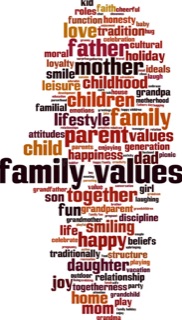
When I arrived in the USA as an immigrant child I noticed that American values were to help and respect all our neighbors.
What happened since? Understanding toxic family dynamics is crucial for fostering healthier relationships and ensuring emotional well-being. Here are nine common toxic family dynamics to be aware of:
Constant Criticism: Family members frequently criticize each other, undermining self-esteem and creating an environment of insecurity.
Control and Manipulation: One or more family members exert control over others through manipulation, guilt-tripping, or emotional coercion, stifling individuality.
Neglect: Emotional or physical neglect can lead to feelings of unworthiness, as family members fail to provide the necessary support or attention.
Chaos and Unpredictability: A lack of stability—due to substance abuse, frequent conflict, or erratic behaviors—can create a stressful environment, making it hard for children to feel secure.
Unrealistic Expectations: Families may place excessive pressure on members to achieve certain goals or conform to specific roles, leading to feelings of inadequacy.
Blame and Shame: Instead of taking responsibility, family members may shift blame onto others, fostering a culture of shame that discourages open communication.
Lack of Boundaries: Healthy boundaries are crucial for personal well-being. In toxic families, boundaries are often ignored or violated, leading to feelings of suffocation or intrusion.
Favoritism: Perceived or actual favoritism can breed resentment and feelings of rejection among siblings or other family members, leading to lifelong rifts.
Avoidance of Conflict: Families may avoid discussing important issues, leading to unresolved problems that fester, creating tension and misunderstandings.
Recognizing these dynamics is the first step toward healing. By acknowledging them, you can start to set boundaries, seek support, and cultivate healthier relationships, both within your family and in your own life.
Growing up in a toxic family environment can be incredibly challenging, but there are constructive steps you can take to break the cycle and create a healthier life for yourself and your children. Here are some effective strategies to consider:
Acknowledge the Problem: Recognizing that something is wrong is the first step toward healing. Insight can lead to meaningful change.
Reflect on Current Interactions: Consider how your relationships with extended family members affect you today. Understanding these dynamics can help you navigate them more effectively.
Establish Boundaries: Setting clear boundaries is crucial. Take time to identify and communicate your needs directly when someone crosses a line.
Practice Assertiveness: Aim for a balance between passivity and aggression. Assertive communication allows you to express your feelings and needs without conflict.
Express Your Feelings: Share how certain actions or behaviors impact you. Be prepared for the possibility that some family members may not change, and that’s okay.
Seek Supportive Communities: Surround yourself with people who uplift you. Friends, coworkers, or community groups can provide the emotional support you need.
Consider Professional Help: A therapist can be invaluable in helping you process your experiences, develop healthier communication strategies, and work through unresolved issues.
Limit Contact When Necessary: In some cases, it might be best to reduce interactions with toxic family members. Conversely, finding a path to forgiveness can also bring a sense of peace.
By implementing these strategies, we can cultivate a more positive environment for ourselves and our children, ultimately leading to healthier relationships and emotional well-being.
Fostering a healthy family environment involves nurturing key values that can help strengthen bonds and promote emotional well-being. Here’s a closer look at these essential values and how we can incorporate them into our family life:
Empathy
- Practice Compassion: Encourage family members to share their feelings and perspectives.
- Model Kindness: Show compassion in our interactions with others, including animals.
- Volunteer Together: Engage in community service to help children understand the importance of empathy.
Togetherness
- Prioritize Shared Activities: Dedicate time to cook, explore new places, hike, or share memories with extended family.
- Create Rituals: Establish regular family nights with activities like watching a favorite show or playing games.
Honesty
- Promote Truthfulness: Teach children the importance of honesty by modeling ethical behavior and discussing the consequences of lying.
- Encourage Open Communication: Foster an environment where family members feel safe sharing their thoughts without fear of punishment.
Love
- Express Affection: Show love through small gestures, physical touch, and verbal affirmations.
- Thoughtful Surprises: Give small, meaningful gifts that show we care.
Loyalty
- Support One Another: Encourage family members to share their feelings and challenges openly.
- Prioritize Caring: Emphasize the importance of looking out for one another, especially during tough times.
Perseverance
- Set Shared Goals: Work together to achieve family objectives, which can foster resilience.
- Practice Self-Care: Model self-care habits that contribute to overall family well-being.
Respect
- Encourage Politeness: Teach the importance of respectful behavior and good manners.
- Establish Boundaries: Set clear boundaries to help everyone understand and respect each other’s personal space and feelings.
By instilling these values, we can create a supportive and nurturing family environment that not only strengthens our relationships but also prepares each member to thrive in the wider world.
Reach out to your representative and demand that they vote for strengthen America and to destroy or shut it down.